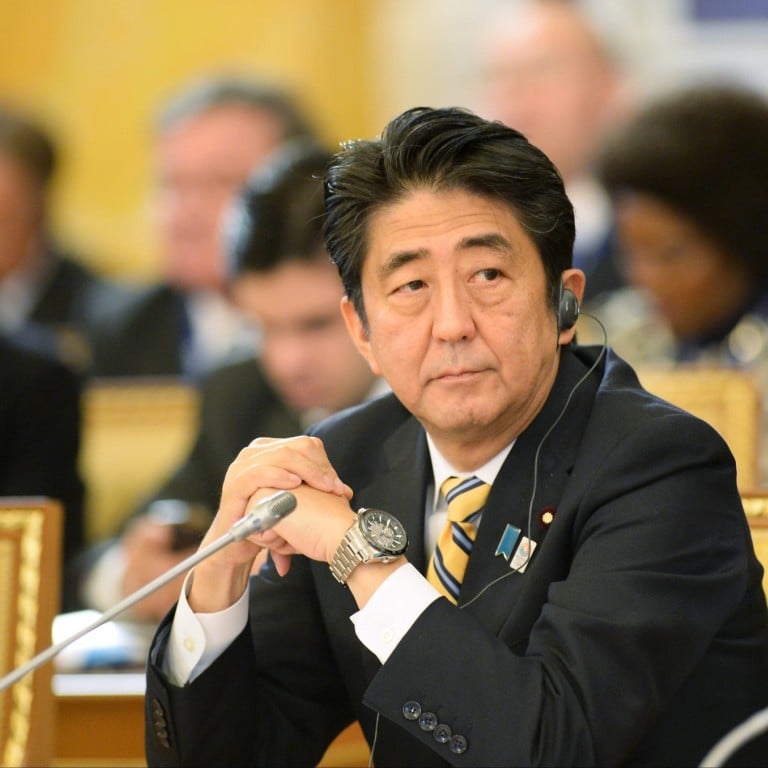
Japan's Abe urges reset in ties in meeting with Xi Jinping
Brief encounter on sidelines of G20 unlikely to change Beijing's stance on talks with Tokyo to thrash out differences over East China Sea islands
Japanese Prime Minister Shinzo Abe called for China and Japan to reset their frayed ties when he briefly met President Xi Jinping on the sidelines of the G20 summit.
But Beijing is likely to react coolly to Abe's entreaty, as it fears Tokyo may still emphasise tough rhetoric as it boosts its military capability, observers said.
The two leaders shook hands and "exchanged polite greetings" for about five minutes shortly before G20 leaders began their main discussion, their first face-to-face encounter since the Japanese national government purchased the disputed Diaoyu Islands, known as the Senkakus in Japan, a move that heightened the risk of military confrontation.
Chinese media also highlighted the brief encounter, with state television reporting the encounter on its evening main newscast.
Xi told Abe the relationship between the two nations was "facing grave difficulties" that both sides were "unwilling to see".
Xi said China wanted to improve ties with Japan, but on the basis of four bilateral political documents signed in the 1970s, when the two nations normalised relations, Xinhua reported. China hoped Japan could handle the territorial dispute in a "correct" manner, it said.
Both nations have been locking horns over the islands in the East China Sea, with Beijing expressing anger over Tokyo's purchase of the islands, and Japan's moves to build up its national defence.
In Tokyo, Chief Cabinet Secretary Yoshihide Suga said the meeting was a "significant" step for the two nations to restore ties.
"Abe explained to Xi the two nations should develop ties by going back to the very original points of the strategic, mutually beneficial relationship," he said.
At the G20 meeting, Abe exchanged greetings and chatted with South Korean President Park Geun-hye before the leaders' dinner on Thursday, Japanese officials said. Relations between Tokyo and Seoul also have soured due to a separate territorial dispute and disagreement over their wartime past.
Tokyo pressed for high-level two-way talks with Xi, but Beijing said Tokyo's call amounted to grandstanding.
Professor Zhou Yongsheng , a Japanese affairs expert at the China Foreign Affairs University, said holding an informal meeting with Abe could send a signal Beijing wanted to engage in dialogue with Tokyo. "The international community has the perception that it is Beijing shutting the door on talks. A brief meeting can help counteract such perception." But Zhou said the meeting was unlikely to achieve a breakthrough because Beijing was still waiting to see what Tokyo would do.
"Beijing believes it's Japan's tactic to show a soft stance, and later get back to acting tough against China," he said.
Professor Lin Xiaoguang , a specialist in international relations at the Central Party School, said China and Japan had different interpretations of the "original points" of their relationship.
"For Japan, it means China will not bother about Tokyo's nationalisation of the islands. But for China, it means that Japan acknowledged the sovereignty of the islands is in dispute," he said, adding that Beijing used the informal meeting as an opportunity to reiterate its stance towards Japan.

